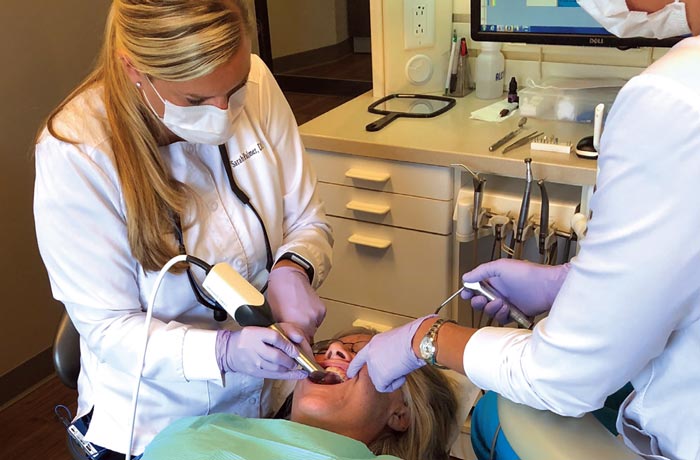An Overview to Common Dental Conditions That Require a Dental practitioner's Care
Toothaches, for instance, can be symptomatic of serious concerns such as cavities, split teeth, or abscesses, each requiring certain interventions like fillings or origin canals. Affected knowledge teeth and jaw disorders can present significant pain and problems.
Toothaches
Toothaches are an usual oral problem that can range from moderate pain to serious discomfort, usually showing a hidden concern that calls for professional interest. This pain can originate from a variety of sources, including oral tooth cavities, cracked or fractured teeth, and oral abscesses. Each of these problems presents substantial risks if left unattended, potentially resulting in a lot more severe problems.
Dental cavities, likewise understood as cavities, are created by the buildup of plaque that erodes tooth enamel, leading to openings or pits in the affected teeth. Abscesses are agonizing infections at the root of a tooth or in between a tooth and the gum, typically resulting from serious decay or neglected cavities.
Efficient treatment of toothaches involves addressing the root reason. This might include dental fillings for dental caries, crowns for split teeth, or root canals and anti-biotics for abscesses. Very early treatment by a dental expert can prevent additional damage and relieve discomfort, ensuring ideal dental wellness.
Periodontal Condition

The primary source of periodontal illness is microbial plaque, a sticky, anemic film that regularly forms on teeth. Poor dental health, cigarette smoking, hereditary predisposition, and specific clinical problems, such as diabetes mellitus, can aggravate the danger of developing gum tissue illness. Routine oral check-ups are essential for early detection and management of this condition.
Treatment for periodontal disease ranges from expert dental cleaning and scaling to advanced procedures like root planing and gum surgery, depending upon the seriousness. Preserving excellent dental hygiene methods, including cleaning twice daily, flossing, and making use of an antiseptic mouth wash, can substantially decrease the threat of gum tissue condition and advertise much healthier gum tissues.
Tooth Cavities
Dental caries, likewise called dental decays, are a typical dental condition defined by the destruction of tooth enamel because of acid-producing bacteria in the mouth. These germs thrive on sugars and starches from food and drinks, producing acids that slowly wear down the enamel, resulting in cavity development.
Early-stage cavities may disappoint symptoms, but as they proceed, they can trigger toothache, sensitivity to chilly or warm, visible holes or pits in the teeth, and staining. If left untreated, cavities can penetrate deeper layers of the tooth, possibly check out here resulting in extreme discomfort, infection, and even missing teeth.
Stopping cavities entails a combination of excellent oral health practices and nutritional behaviors. Normal brushing with fluoride tooth paste, flossing, and routine dental examinations are critical. Dentists may additionally suggest extra preventative steps, such as fluoride treatments and dental sealers, to secure teeth from decay.
Minor tooth cavities can be addressed with dental fillings, which restore the tooth's structure. Much more advanced instances may need crowns or even origin canal therapy if the degeneration has gotten to the tooth's pulp.
Impacted Wisdom Pearly Whites
Influenced wisdom teeth are a widespread dental issue that takes place when the 3rd molars, commonly described as wisdom teeth, fail to completely emerge or line up properly within the mouth. This condition usually arises from not enough area in the jaw or an irregular growth angle of the teeth. Influenced wisdom teeth can lead to a variety of problems, including infection, discomfort, and damages to adjacent teeth.
When wisdom teeth become impacted, they are commonly partly appeared or remain totally under the periodontal line. This partial eruption can create a path for bacteria to go into the gum tissues, leading to infections that materialize as click reference swelling, discomfort, and even fever (dentist eugene or). In addition, affected knowledge teeth can apply stress on neighboring teeth, potentially creating crowding or shifting
A detailed oral exam, generally including X-rays, is important for identifying impacted knowledge teeth. Routine oral exams are suggested to keep an eye on the condition and maintain dental wellness.
Jaw Conditions
Verdict

Oral cavities, likewise recognized as decays, are caused by the build-up of plaque that erodes tooth enamel, leading to holes or pits in the impacted teeth. Abscesses are painful infections at the origin of a tooth or in between a tooth and the gum tissue, generally resulting from extreme decay or untreated tooth cavities.
Impacted knowledge teeth are a common oral concern that happens when the 3rd molars, typically referred to as wisdom teeth, stop working to totally emerge or straighten properly within the mouth. Impacted wisdom teeth can lead to a selection of problems, including damage, infection, and discomfort to surrounding teeth.
In addition, affected knowledge teeth can apply stress on bordering teeth, potentially triggering crowding or moving.